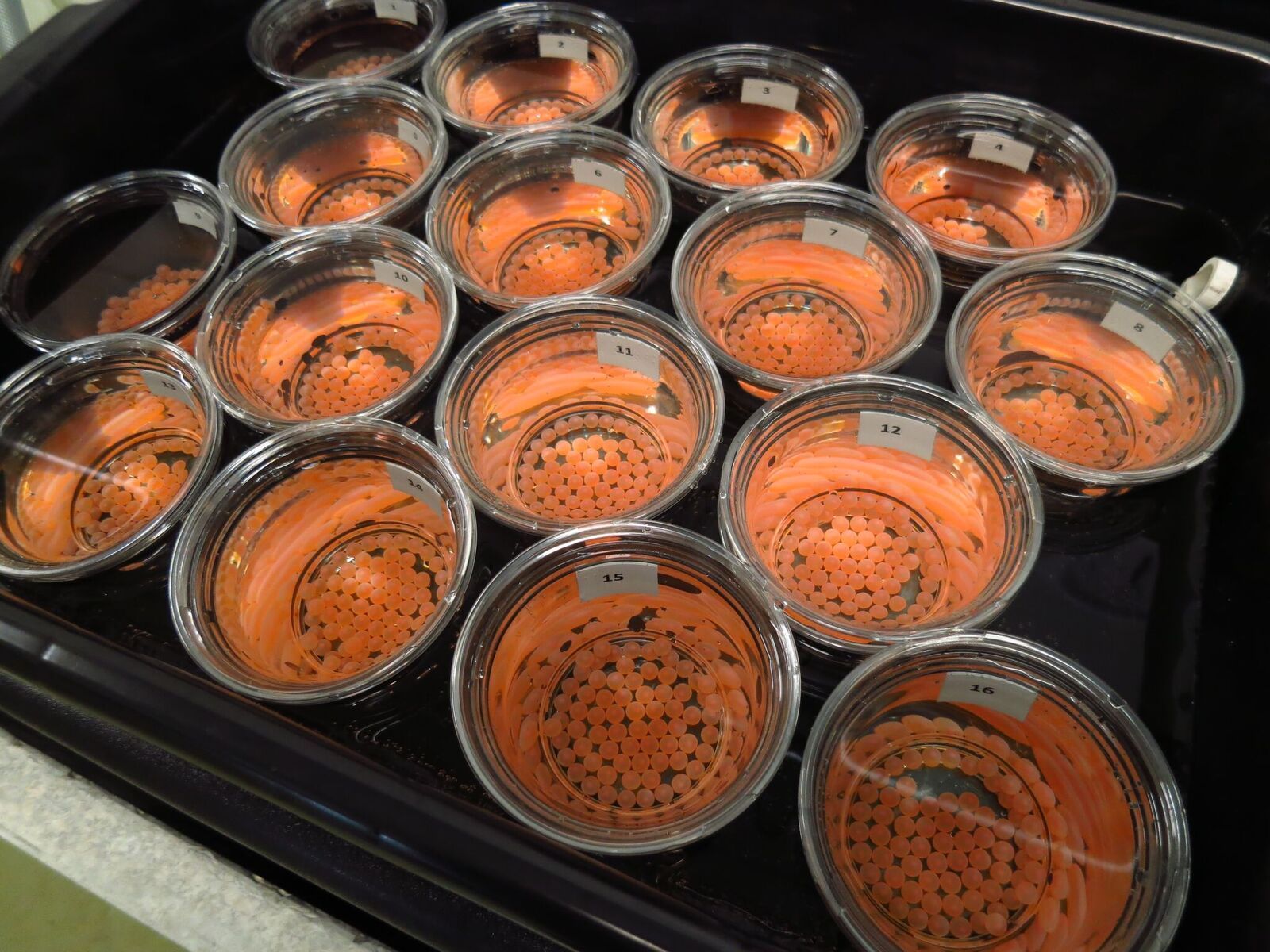Aqua-Spark, the Dutch venture capital fund, has finalized two investments this week that signal the fund dedicated to the future of aquaculture is moving beyond farms and feed.
The new investments are in two animal health startups Proteon Pharmaceuticals and Cryoocyte.
Before this latest announcement, Aqua-Spark had invested in eight companies, four aquaculture operations (Sogn Aqua, Chicoa Fish Farms, Matorka, and Indian Ocean Trepang) three in the fish feed space (Calysta , eFishery, and Protix) and one outlier in sustainable fish-centered frozen foods company Love the Wild.
Since its founding in 2015, Aqua-Spark has made 15 of the 60-80 investments co-founder Mike Velings says the firm intends to make within 15 years. The fund currently has €49.4 million ($57.9 million) under management, but that figure is always increasing for the open-ended fund.
Proteon Pharmaceuticals
Proteon has created a salmonella preventative for fish and poultry and raised €3.5 million ($4.1 million) in Series A funding from sole-investor Aqua-Spark this week.
Proteon uses bacteriophages, viruses that infect and swiftly kill specific bacteria, to prevent disease. The agents were discovered more than 100 years ago but fell out of favor in fighting disease when antibiotics went into mass production in the 1940s, according to Proteon chief operating officer Matthew Tebeau.
Though research and activism around the health risks created by antibiotic use in animals raised for food generally center around poultry and livestock, Tebeau says that the highly competitive nature of the aquaculture industry leads farmers to habitually use antibiotics, which has likely contributed to the global antibiotic resistance issue.
In fact, the US Center for Disease Control predicted in 2013 that 23,000 US deaths per year are due to antibiotic resistance. Journalist and author of “Big Chicken; The Incredible Story of How Antibiotics Created Modern Agriculture and Changed the Way the World Eats,” Mary McKenna, puts that number at 700,000 deaths worldwide.
“We’ve been looking at disease-battling companies from the beginning. Our goal is to show sustainable, healthy, and affordable aquaculture has better financial returns than when you make a mess,” said Velings.
Velings said he had been looking into bacteriophages for some time but hadn’t found a company to invest in until Proteon. “It’s easy to use phages to treat one person. Making a treatment for a million chickens or a million fish and effectively administering that is a different story.”
In order to prevent salmonella now, fish farmers must rely on good operating standards and frequent testing. “There is a lot being done to prevent [salmonella] or prevent a positive test,” said Tebeau. Proteon’s phages are added to aquaculture tanks or poultry feed.
Proteon’s overall strategy is to create preventatives for diseases that currently have no treatment. “There are no antibiotics that help salmonella. The company is targeting where antibiotics are not working anymore or never worked and if that’s not an incentive, I don’t know what is,” Velings told AgFunderNews.
Tebeau says that Proteon’s intellectual property lies in the process of discovering the correct bacteriophages to target a specific bacteria and the production process to bring bacteriophages to scale, which Proteon has developed in-house. The company will use the new funds to expand their production capacity and distribution through direct sales and partnerships.
Before this funding round, the company had raised €8.5 million ($10 million) in grants from the European Union and the Polish Innovation Fund in addition to private investors and family offices.
Cryoocyte raised a $4 million Series A round jointly led by Aqua-Spark and existing investor Boston-based Vodia Ventures.
Cryoocyte offers a cooling and storage method that gives breeders a much longer window of time to perform genetic testing and make breeding decisions. The technology expands the time a breeder has to make crucial decisions from one day to two weeks, allowing breeders to test for more diseases and markers of quality.
“When you do selective breeding with salmon, you have about 24 hours to do egg selection, which focuses just on the males because there is no time to focus on the females,” said Velings.
Cryoocyte says that more precise breeding can lead to less disease, lower mortality, and more feed efficiency in farmed fish.
Also in development is a second service: a freezing method that allows fish eggs to be more safely stored and transported while still remaining viable.
This technology would eliminate the seasonality of breeding for some species of fish. Velings is particularly excited by the potential for Cryoocyte’s technology to maintain biodiversity in aquaculture, which is likely to decrease over time as heartier species that are cheaper to produce become favored over more sensitive, less efficient ones.
“The diversity is not going to last. We’ll end up with just a few species. We think that diversity is great and sets aquaculture apart and is much better for food security,” said Velings.
The company is mainly focused on aquaculture in Norway where the world’s most technologically advanced operations are located, CEO Dmitry Kozachenok told AgFunderNews. Cryoocyte has also worked in China and the US. The Massachusetts-based firm will use the new funds to expand its team.
Cryoocyte raised a $2 million seed round in 2014 and has also received grants from the US Department of Agriculture and Innovation Norway in the past.
Photo: Cryoocyte





